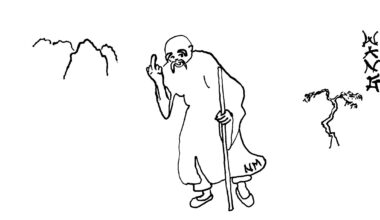In recent years, some thinkers have proclaimed that spirituality has run its course. They argue that individual transcendence lacks the strength to hold humanity together, and that a shared moral grammar or even a world religion is now required. They suggest that the spiritual-but-not-religious era has exhausted itself, and that the scattered insights of the world’s traditions should be woven into a single, integrating system.
The idea has its appeal. Modern societies are fragmented, traditional bonds have weakened, and individualism often leaves people adrift. Pluralism has brought tolerance but also detachment and uncertainty about shared values. Secularism is in a fight for protection against fundamentalism. The longing for unity and ethical coherence is understandable. Yet the answer cannot be another religion, however refined its design to unite the existing ones. History shows that once religion becomes an institutional power, it hardens into hierarchy, dogma and, in time, repression.
The Failure of Institutions, Not the Sacred
Spirituality has not failed. What has failed are the institutions that tried to contain it, turning it into new religions, and the weightless versions that lacked the strength to resist fanaticism or to unite people in shared purpose. When the mystical is seized by an organisation, the living encounter with meaning is replaced by obedience. What should be an experience of depth becomes an instrument of control, sometimes even violence. To say spirituality is finished is to mistake the symptom for the cause.
From this understanding arises the idea of humanecy (pronounced like ‘democracy’), my philosophy, shaped by years of study. Humanecy is neither religion nor ideology. It is a moral and institutional framework in which spirituality remains a foundation, but never a possession. It begins with the recognition that dignity is intrinsic, that every person holds the capacity for empathy, reflection, and ethical imagination. Spirituality is the lived expression of that capacity, and it must be protected from the forces that would capture or commodify it.
Three Pillars of Humanecy
Humanecy stands on three pillars. The first is a spiritual-ethical foundation: the recognition that inner experience, compassion, and moral imagination are the roots of value. The second is democratic structure: collective norms and education are shaped through transparent and participatory processes where no authority, religious or secular, dominates. The third is pluralism with coherence: cultures and expressions remain diverse, while shared procedures define and safeguard values. Unity arises through method and accountability, not belief.
The attraction of a world religion lies in its promise of unity, but unity without process becomes uniformity, and uniformity invites exclusion and power. Any framework claiming to represent all traditions inevitably privileges some and silences others. Even with noble intentions, centralised authority soon follows. Humanecy rejects that. It seeks coherence through dialogue, not decree, offering a common ethical infrastructure without prescribing belief.
Educating the Spirit for Civic Life
In practice, humanecy could take the form of a Charter of Humanecratic Values, a living document that articulates principles such as human dignity, ecological care, mutual respect, and self-determination. Its legitimacy comes from open deliberation and continual revision, not religious sanction.
Local forums could experiment with inclusive rituals, civic ceremonies, and educational practices that express shared values. A global, rotating council might coordinate transparency, gather best practices, and publish ethical reviews. These structures remain advisory, protecting freedom while nurturing coherence.
Ritual and symbolism retain their place but become human rather than hierarchical. Civic commemorations, ecological observances, and shared reflections on compassion or mortality can offer sacred grounding without exclusion. Oversight ensures consent and prevents misuse. Education links inner development with civic responsibility, combining emotional intelligence, critical thought, and practical skill for ethical participation.
Freedom, Plurality, and Ethical Coherence
Critics may call humanecy idealistic. Yet genuine devotion doesn’t grow from fear or obedience, but from a free encounter with meaning. Others might suspect a disguised form of Western universalism. Humanecy avoids this through decentralisation and local autonomy. Its goal is not to export a worldview, but to safeguard coherence while allowing plural expression.
Spirituality has always been the source of ethical imagination. Nonviolent movements, reform efforts, and ecological activism all drew power from spiritual insight, namely the recognition of interdependence, compassion, and dignity. What has failed through history isn’t spirituality itself but the institutions that weaponised it. Humanecy preserves the sacred by rooting it in reasoned process and by building safeguards against its misuse.
Political Maturity of the Spiritual
Humanecy is a synthesis of spiritual insight and democratic discipline. It places intrinsic human value above authority, and plural expression above conformity. The world indeed needs shared moral standards, but these must be procedural rather than doctrinal, coherent without coercion, grounded in freedom rather than belief. Humanity needs many carriages on one track of ethical responsibility, moved not by dogma but by autonomy.
Spirituality has not ended. What must end is the illusion that progress or salvation depends on the rise of another global faith. Humanecy marks the coming of age of spirituality. It secures freedom, protects the sacred, and offers a framework for global ethics without repeating the failures of religion.









Your email address will not be published. Comments are subject to our Community Guidelines. Required fields are marked *
Donate